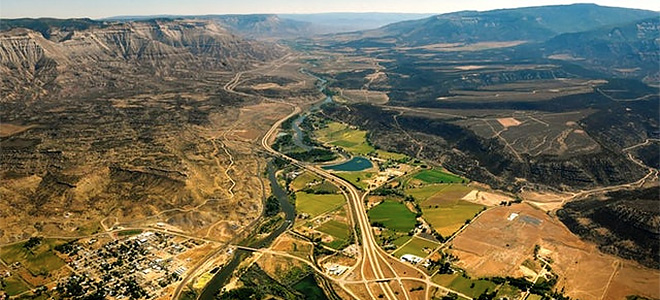
by Rebecca Page and Lisa Dilling
Weather, Climate, and Society (September 2019)
Photo: The Colorado River winds through the Western Slope town of DeBeque, Colorado. Credit: Helen H. Richardson/The Denver Post.
Abstract: Significant effort has been put into advancing the use and usability of information products to support adaptation to drought and climate variability, particularly for the water supply sector. Evidence and experience show that advancing the usability of information through processes such as coproduction is time consuming for both providers and users of information. One challenge for boundary organizations and researchers interested in enhancing the usability of their information is how such processes might “scale” to all the potential organizations and individual managers that might possibly be able to benefit from improved climate information. This paper examines information use preferences and practices specifically among managers of small water systems in the Upper Colorado River basin, with an eye toward identifying new opportunities to effectively scale information usability and uptake among all water managers—regardless of location or capacity—in a resource-constrained world. We find that boundary organizations and other usable science efforts would benefit from capitalizing on the communities of practice that bind water managers together. Specifically, strategic engagement with larger, well-respected water systems as early adopters, supporting dissemination of successes and experiences with new information products among a broader community of water managers, and increasing well-respected water systems’ capacity to engage directly with rural systems may all serve as useful strategies to promote widespread distribution, access, and adoption of information. Read more …

